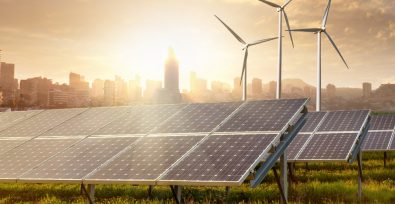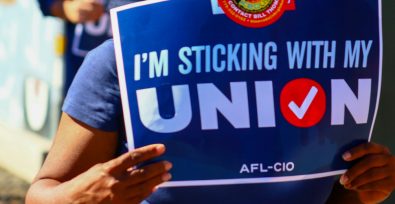This Earth Day, as we applaud the strides of the environmental movement, a pressing question emerges: Are the green technologies we champion as pillars of sustainability really as ethical as they seem?
While green solutions like electric vehicles, solar panels, and wind turbines are celebrated for their role in combating climate change, there’s a darker side to these innovations that goes unnoticed. Ethics come into question when you’re driving a car or powering a home with technology that, beneath its clean exterior, involves forced labor and exploitative conditions. The cobalt that powers our batteries, the polysilicon that captures our solar energy, and the rare earth elements that keep our turbines spinning – are these materials sourced in a manner that upholds the ethical standards we strive for?
This Earth Day, let’s take a moment to look beyond the surface of the green technologies we often celebrate. As you read on, you’ll uncover some unsettling truths about the real cost of these innovations. Are they truly as sustainable as we think, or are we overlooking their profound human toll? Can we genuinely consider our solutions sustainable if they compromise the dignity and rights of vulnerable communities?
The questions we raise today invite you to join us in rethinking what sustainability really means. It encompasses far more than ecological preservation – it demands the protection of human rights and the well-being of everyone involved in forging our green future.
Solar panels
Solar panels are celebrated for reducing reliance on environmentally harmful fossil fuels, yet their production raises profound ethical concerns. In 2021, almost 45% of the world’s solar-grade polysilicon supply used in solar panels came from the Uyghur Region, and the four largest global solar panel suppliers were implicated in the Uyghur forced labor system in China. This problematic aspect of solar panel production is not isolated to small-scale operations but implicates major portions of the global supply chain. It is estimated that China currently accounts for 98% of solar panels entering the European market – meaning the risk of Uyghur forced labor solar panels is very high for European consumers.
World leaders must take steps to avoid being complicit in this crime and make clean energy free of forced labor!
Electric vehicles
The supply chains of electric vehicles (EVs) are marred by severe abuses, notably in the extraction and processing of essential materials like cobalt and aluminum. Around 70% of cobalt, a critical component for batteries in EVs, is mined in the Democratic Republic of the Congo (DRC). The working conditions in these mines are extremely dangerous with children exposed to hazardous environments and subject to commercial sexual exploitation. About 30% of the world’s cobalt supply can be linked back to forced child labor. And demand for the metal is growing rapidly. Further exacerbating the issue, the transportation and supply chains involved in moving cobalt from mines to market are also implicated in labor abuses.
Additionally, 60% of the lithium needed to create these batteries is then processed in China, with a large portion being handled in the forced-labor-ridden Xinjiang region. Major car manufacturers like Tesla and Volkswagen have faced scrutiny for their connections to Uyghur forced labor in China, particularly concerning the materials and parts used in their vehicles. Tesla, a pioneer in the EV industry, is accused of sourcing different car parts directly and indirectly from the Xinjiang region.
EV manufacturers must work to end their reliance on the Uyghur region for car production. The only way to avoid complicity in forced labor is for manufacturers to cut ties with producers in the region altogether.
Wind turbines
While wind turbines are seen as a key component of sustainable energy solutions, their production gives cause for concern. The extraction of rare earth minerals essential for turbine production frequently occurs under forced labor conditions. Supply chains for wind energy have been linked back to Uyghur and Kazakh forced labor, as well as hazardous child labor in DRC’s cobalt mines.
We strongly believe that we need climate justice without modern slavery!
Advocating for a just transition
The climate crisis stands as one of the most pressing concerns for our generation and those to come, underscoring the necessity of investing in green solutions that decarbonize our planet. However, these solutions must not come at the expense of people.
As we commemorate Earth Day, we must recognize that protecting our planet requires a just transition that integrates ecological sustainability and the eradication of forced labor. We invite you to join us by signing our petition, demanding that our pursuit of a greener world is free from human exploitation. Together, we can ensure that environmental justice and human rights advance hand in hand. Sign today for a future that is sustainable and just for all!







-
Follow us on Facebook
5.6M
-
Follow us on Twitter
32K
-
Follow us on Instagram
8K
-
Subscribe to our Youtube
5.7K
Donate